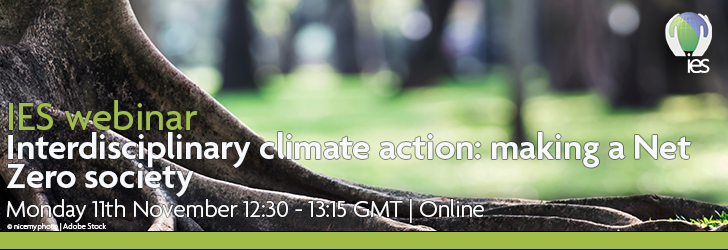New thinking on social and cultural change is required if government is going to reach its net zero target. Technology alone will not be enough. People, our societies and our systems need to change and adapt to meet our net zero goals.
The ESRC funded ACCESS project brought together a task force of 10 leading academics to call for the government to make more consistent and effective use of social science, to build a more sophisticated understanding of societal change and to plan next steps to achieve net zero ambitions. Prof Patrick Devine-Wright will discuss the findings and recommendations of the newly launched report 'Making a Net Zero Society: Follow the Social Science', as well as the wider work of ACCESS.
This is a free, online webinar.
Speaker
Professor Patrick Devine-Wright
 Professor Patrick Devine-Wright is an environmental social scientist at the University of Exeter. Patrick is the Director of ACCESS, an ESRC-funded project, which champions the contribution of the social sciences to address and solve environmental problems.
Professor Patrick Devine-Wright is an environmental social scientist at the University of Exeter. Patrick is the Director of ACCESS, an ESRC-funded project, which champions the contribution of the social sciences to address and solve environmental problems.
Patrick’s primary interest is the social acceptance of energy transitions, community engagement and place attachment. He was an IPCC Lead Author on social aspects of climate mitigation in AR6 and sits on the Devon Climate Task Force.
He is committed to leading theory-driven, rigorous social science that is relevant to real-world environmental challenges and has over 20 years of experience working in inter and trans-disciplinary research projects concerning energy transitions and decarbonisation. His work has been oriented towards influencing policy and practice, providing expert advice to government departments and agencies at national and local levels (IPCC/United Nations, governments of the UK, Ireland, Netherlands) and collaborating with energy companies on issues of public and community engagement (National Grid in the UK and EirGrid in Ireland).
He has recently co-authored an ACCESS report, Making a Net Zero Society: Follow the Social Science for national and local government.


